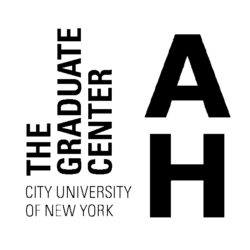Art History PhD students Liz Donato, Mya Dosch, and Luisa Valle have organized a conference on urban spatial practices in contemporary Latin America that will be held at the Graduate Center on April 27th – Interested parties are invited to submit a paper abstract of no more than 400 words along with a brief biographical statement to citybodyconference@gmail.com by Friday, December 5, 2014
Full CFP details below!
In summer 2013, protests against a twenty-cent bus fare increase in São Paulo, Brazil brought thousands of people to the streets. Exploding into a wide range of demands that transcended transit fares, the uprisings combined demonstrations, media-activism, participatory works of art, and spontaneous convivial encounters that emphasized bodily presence in urban space. This engagement with the city as a tool and stage for protest persists not only in Brazil, but also throughout major Latin American cities, from student actions in Chile to escraches in Argentina.
This day-long conference focuses on the potencia of the body and everyday social interactions in the production of Latin American and U.S. Latino urban environments. We ask: What are the possibilities and limitations of creative urban interventions that emphasize the social/the body? Can an emphasis on “lived space” provide an alternative to both the nostalgic retrieval of modernist utopias and overdetermined narratives about the failure of modernism? While we focus on present-day claims to urban space, we also wish to consider the legacies of conflictive spatial politics in the region, from the rise of military dictatorships to the subsequent tensions during so-called processes of democratic transition and aggressive neoliberalism.
Bringing together perspectives from diverse fields such as art and architectural history, urbanism, sociology, and geography, we invite papers by scholars, activists, artists, and advanced graduate students that engage critically in a discussion on the production of lived and/or social space in Latin American cities, from the 1960s to the present.
Potential paper topics may include, but are not limited to:
- The performativity of the street
- Mobility, difference, and the right to the city
- Interventions into high modernist spaces
- The representation and aestheticization of urban protest and poverty
- Reflections on the transdisciplinary nature of activist interventions
- Reevaluations of the neo-vanguardias, in light of contemporary practice
- Feminizing and queering urban spaces
- Liminality, urban border zones, and migrations
- Interconnected ontologies of body and city
- Grassroots cultural production in the neoliberal city
- Comparative approaches to urban space in the Global South
Sponsored, in part, by the Rewald Fund of the PhD Program in Art History, The Center for the Humanities and The Committee on Globalization and Social Change, The Graduate Center, CUNY



